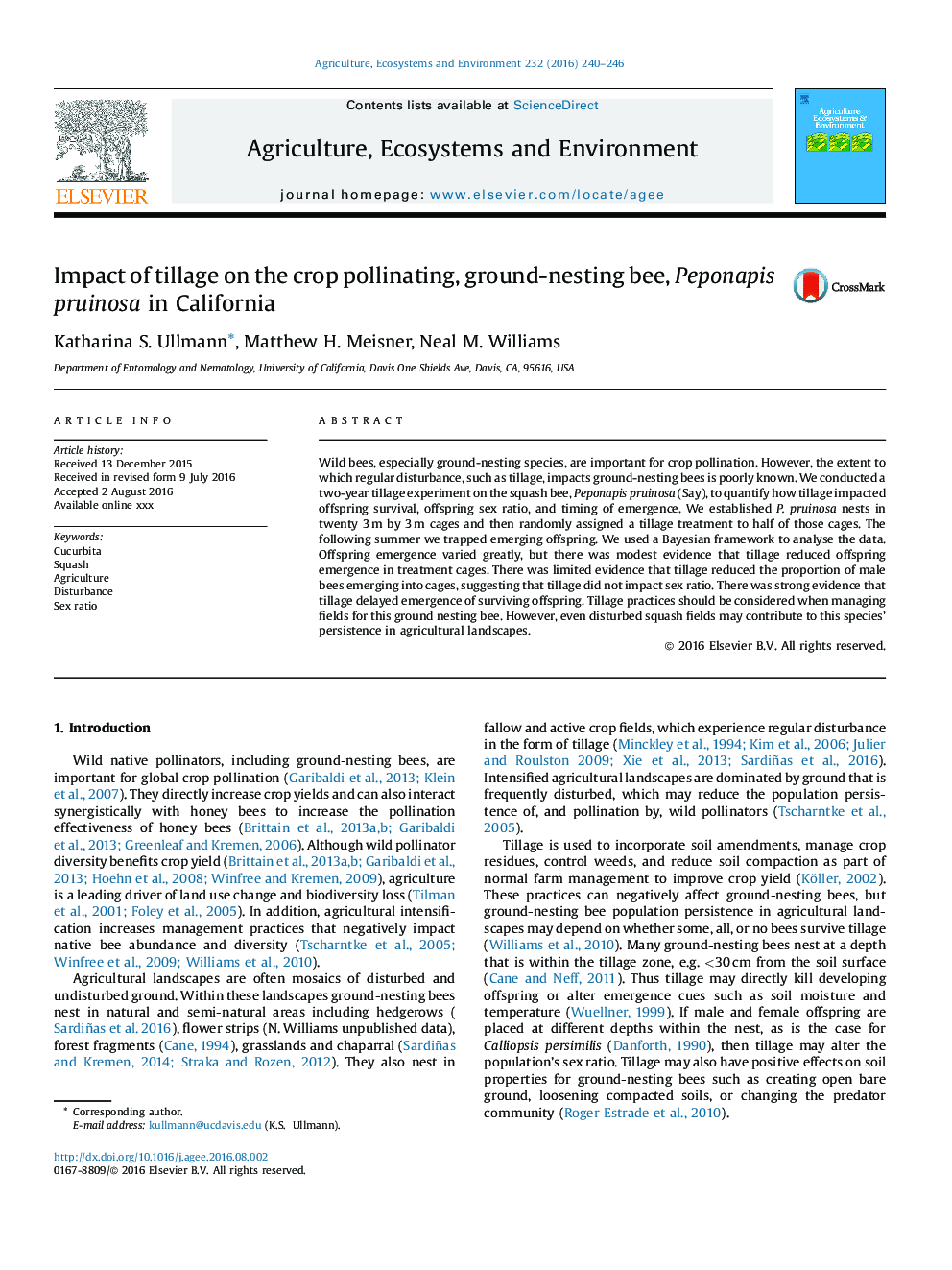| Article ID | Journal | Published Year | Pages | File Type |
|---|---|---|---|---|
| 8487323 | Agriculture, Ecosystems & Environment | 2016 | 7 Pages |
Abstract
Wild bees, especially ground-nesting species, are important for crop pollination. However, the extent to which regular disturbance, such as tillage, impacts ground-nesting bees is poorly known. We conducted a two-year tillage experiment on the squash bee, Peponapis pruinosa (Say), to quantify how tillage impacted offspring survival, offspring sex ratio, and timing of emergence. We established P. pruinosa nests in twenty 3Â m by 3Â m cages and then randomly assigned a tillage treatment to half of those cages. The following summer we trapped emerging offspring. We used a Bayesian framework to analyse the data. Offspring emergence varied greatly, but there was modest evidence that tillage reduced offspring emergence in treatment cages. There was limited evidence that tillage reduced the proportion of male bees emerging into cages, suggesting that tillage did not impact sex ratio. There was strong evidence that tillage delayed emergence of surviving offspring. Tillage practices should be considered when managing fields for this ground nesting bee. However, even disturbed squash fields may contribute to this species' persistence in agricultural landscapes.
Related Topics
Life Sciences
Agricultural and Biological Sciences
Agronomy and Crop Science
Authors
Katharina S. Ullmann, Matthew H. Meisner, Neal M. Williams,
